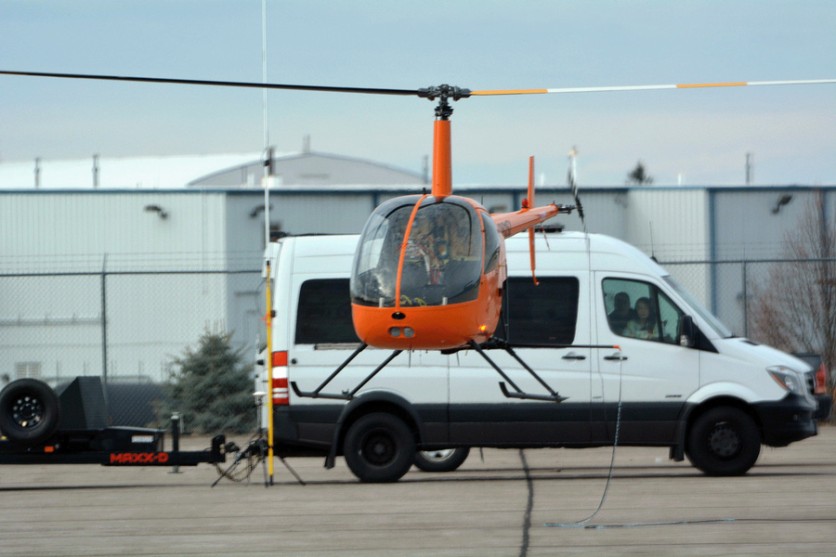In a significant stride towards aviation safety, Rotor Technologies is at the forefront of revolutionizing commercial missions with self-flying helicopters. This innovation marks a transformative step forward in ensuring safer skies for all.

Rotor Technologies starts with an existing helicopter model and adds control, sensing, and other software systems to make it autonomous.
Transforming Aviation with Self-Flying Helicopters
MIT Ph.D.s are revolutionizing the field of aviation through the introduction of autonomous helicopters. Rotor Technologies, led by this group of esteemed researchers, is pioneering the retrofitting of conventional helicopters with a sophisticated array of sensors and software.
Interesting Engineering reported that this innovative approach aims to eliminate the need for human pilots on perilous flights and to broaden the applications of aviation.
The genesis of this groundbreaking endeavor traces back to 2019 when Hector Xu, in pursuit of his Ph.D. in MIT's Department of Aeronautics and Astronautics, embarked on helicopter flight training. His firsthand experiences in the cockpit ignited a fervent determination to enhance helicopter safety.
Addressing Small Aircraft Fatalities
Subsequently, Xu founded Rotor Technologies, Inc. in 2021 with a singular goal: to outfit existing helicopters with state-of-the-art technology, ushering in a new era of aviation safety and efficiency.
Flying small private helicopters may appear less risky than commercial airliners, but the reality proves otherwise. Each year, fatalities occur in small aircraft, particularly during activities such as crop dusting, firefighting, and medical evacuations.
Rotor Technologies addresses this issue by outfitting helicopters with advanced sensors and software, allowing some of the most perilous flights to be conducted autonomously. Rotor's solution involves equipping helicopters with a suite of sensors and software, making some of the most dangerous flights autonomous.
Rotor's autonomous helicopters outshine traditional battery-powered drones, flying faster, longer, and carrying heavier payloads. By retrofitting reliable helicopter models that have been around for decades, Rotor has accelerated its commercialization process.
Rotor Technologies sets itself apart from competitors by prioritizing autonomy over the development of entirely new aircraft. Led by Ben Frank, the company's chief commercial officer, Rotor focuses intently on autonomy, believing it to be the key to revolutionizing vertical flight and enhancing safety and accessibility.
As per MIT's press release, the company boasts a strong connection to MIT, with founder Hector Xu and a majority of the team being MIT alumni or affiliates. Xu underscores the caliber of his team, noting their exceptional engineering prowess.
While Rotor's technology didn't originate from MIT's labs, Xu credits the institute with shaping his vision for technology and the future of aviation. Yiou He, Rotor's CTO and an MIT alum, serves as a testament to the deep-rooted influence of MIT within the company.
Rotor also aims to initiate aircraft sales this year and scale up production to meet demand in the future. While safety remains a primary focus, Xu envisions Rotor's impact extending beyond flight safety to revolutionizing daily life by enhancing autonomy and affordability in transportation.
Xu envisions a future where Rotor Technologies reshapes daily life, not just by enhancing safety but also by making flight more autonomous and accessible.
Related Article : Skyryse Successfully Performs World's First-Ever Fully Automated Helicopter Autorotation Emergency Landing

ⓒ 2026 TECHTIMES.com All rights reserved. Do not reproduce without permission.




